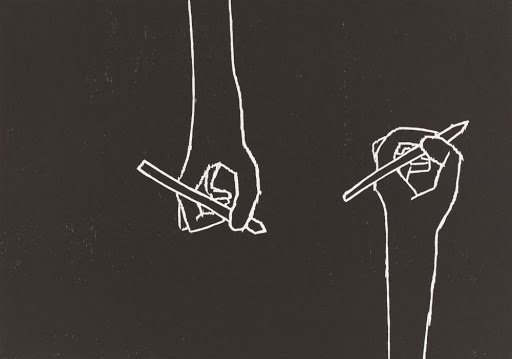
Some of my earliest memories are of me learning about how to sound out and spell words, at the age of 4. It did not take very long, but at such a young age I had the ability to form complete sentences and compose paragraphs. I found reading and writing to be fun and somewhat of a natural fit during my elementary and middle school years. However, in high school I developed a passion for reading literature and conducting my own creative and professional writing. Due to my experiences in the high school theatre, I became inspired to appreciation arts criticism. After gaining the experience of performance in a variety of roles, my interest in using writing to describe art grew significantly. Throughout those years I have pondered the question, are arts critics artists?
It is my opinion and the perspective of many other writers that arts critics are in fact artist themselves, as well as informative entertainers that document the historical and artistic qualities of a piece of art. As a writer, you may or may not have the same capabilities of the artist that you are writing about. However, you will always come up with words that can help others relate to the art through your written and verbal communication.
In undergrad, I developed a sense that we were artist when we formed writing groups. Throughout college there were a number of opportunities for me to join groups of other students to create different types of business and professional writing-especially during the ones that write about creative topics. When you form a writing group it is almost like making a band in music. You want to select writers with unique emphasis, tone and voice just like a rock band would need a drummer, guitar, bass and vocalist for the creative process and performance. The same is true when you are building a team of writers, you may need a different person or certain number of people to cover a variety of topics much like this blog. Some writers put an emphasis on performance, others on arts appreciation, and everyone has a profound sense of what every artistic medium can accomplish in the real world.
Recently, I wrote a music article on Prince’s “Ballad of Dorothy Parker”. I have been a fan of that song for many years and did not realize that Dorothy Parker is a real literary figure. After studying her contributions to literature, it became apparent that she also would form writing groups like making a band, and using words to make music.
There are also two schools of thought relating to arts criticism: (1) art is meaningless because it is created for arts sake, (2) art has a significant role in society because it represents parts of human culture and life itself. I subscribe to the second school of thought. Even if an artist is creating something for the sake of art itself, it still will generate an infinite number of possible meanings to writers and everyone who reads the criticism. Therefore, arts critics are not only just literary artist themselves but they play a significant role in society by helping others to realize the artistic value of all types of art.
Arts criticism has been around for thousands of years and began in ancient times. The earliest performances on the planet were supplemented by others who would write using papyrus or carving in stone the qualities of the art that had been presented to them. Now we have more sophisticated methods like computers, tablets and other technologies that can be used as an instrument that captures the essence of the art. If you’re writing a music article your technology reflects the instruments used to create songs. If you’re writing about a painting, your technology becomes a paint brush.
My favorite part about being an arts critic is that there are an infinite number of perspectives that can be applied to pieces of art. It is possible to learn from someone else’s interpretation and vice versa. I believe this creative process keeps art relevant by creating points of discussion that will bring more visibility to the art, and encourage others to think about it in new ways.


